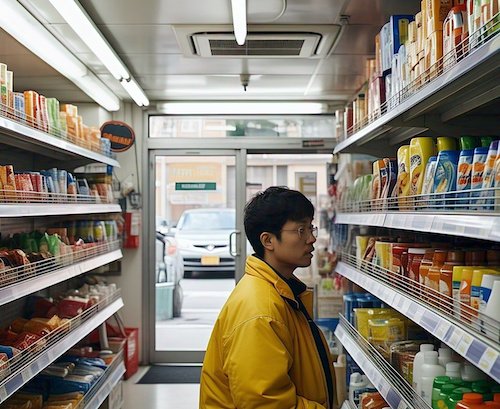Tariff Trouble: How Rising Costs Are Threatening Asian Grocery Stores in America

In the heart of Flushing, Queens, Chang Jiang Supermarket stands as more than just a food supplier—it’s a cultural bridge for the predominantly Asian neighborhood. Its vibrant storefronts, Chinese signage, and sidewalk displays of produce offer a taste of home for many immigrants. Inside, shelves are lined with beloved Asian staples like Lao Gan Ma chili oil and soy sauces. But the supermarket is now facing an unprecedented challenge: soaring import tariffs brought on by Donald Trump’s trade war, especially those targeting Chinese goods.
Wu, the manager of Chang Jiang, fears the store's supply of Chinese products could run dry within two months if the current tariff situation doesn’t change. While most imports now carry a 10% duty, Chinese goods are hit hardest, with additional tariffs raising the total to as high as 145%. Wu revealed that although current stock prices have remained somewhat stable, suppliers have started rationing goods, offering significantly fewer items than before. To maintain inventory, he’s already considering sourcing from other countries like Taiwan or Southeast Asia.
Consumers across the U.S. are also beginning to feel the impact of these economic policies. Everyday staples such as fruit, seafood, coffee, and nuts are becoming more expensive. Wu explained that the cost increases from Chinese suppliers inevitably affect American consumers. While his supermarket has held off on raising prices, he warned that they may not be able to delay much longer. The sharp reduction in product availability and ongoing uncertainty could lead to serious disruptions for both businesses and shoppers.
Thousands of miles away in Arcadia, California, another Asian-owned market is enduring similar struggles. Wing Hop Fung, a family-run business specializing in Chinese herbs and teas, now faces skyrocketing import costs. Lan Ong, who currently manages the store her parents started in 1985, said that shipments arriving from China contain products worth hundreds of thousands of dollars—each container now subject to high tariffs that must be paid immediately. The financial strain threatens the sustainability of small family businesses like hers.
Ong mentioned that she’s working closely with suppliers and vendors to ease the pressure, but she’s still unsure how long they can withstand the burden. Every new shipment increases the cost of doing business, and unlike larger corporations, small businesses don’t have the financial flexibility to absorb those extra costs. Many are being forced to make difficult choices, such as reducing inventory or raising prices for customers.
The broader context shows that American interest in global cuisine is at an all-time high. Over the last decade, the popularity of Asian, Hispanic, and Middle Eastern food has soared. Experts project the market for specialty grocery items will nearly double by 2032, thanks to growing cultural diversity and consumer curiosity. Chains like H Mart, Patel Brothers, and 99 Ranch have leveraged this boom with strong infrastructure and supply chains. But smaller, community-rooted stores lack those advantages and remain more vulnerable to disruptions.
In Hawaii, businesses in Honolulu’s Chinatown are also bracing for economic fallout. Chu Lan Shubert-Kwock, founder of the Chinatown Business & Community Association, said the uncertainty created by tariffs is causing hesitation among retailers. Without clarity on costs, businesses are reluctant to restock. She emphasized that this kind of hesitation can significantly delay operations and disrupt community supply chains.
For immigrant communities across the U.S., these local grocery stores are essential. They provide comfort foods and familiar flavors, but also serve as cultural anchors in rapidly changing neighborhoods. When these stores face economic hardship, the ripple effects extend well beyond their aisles. They impact local economies, limit food access, and erode cultural continuity.
As the trade war continues with no resolution in sight, small Asian grocers are left navigating uncertain terrain. For them, tariffs aren’t just abstract economic policy—they’re an existential threat. Without meaningful policy change or support, many may be forced to shut their doors, taking with them not only goods, but a vital piece of community identity.
What's Your Reaction?
















:format(webp)/cdn.vox-cdn.com/uploads/chorus_image/image/70136881/1347078605.0.jpg)





